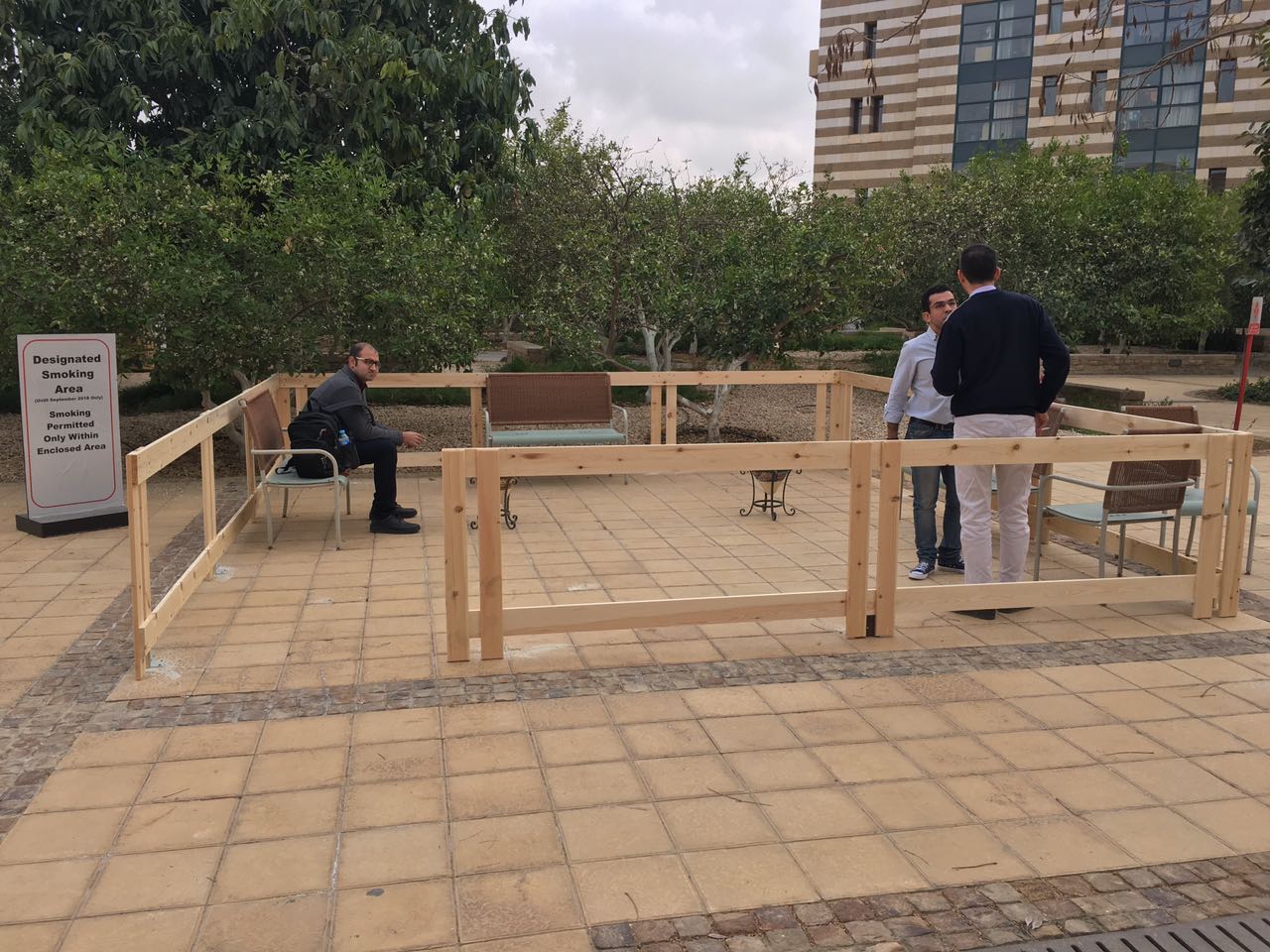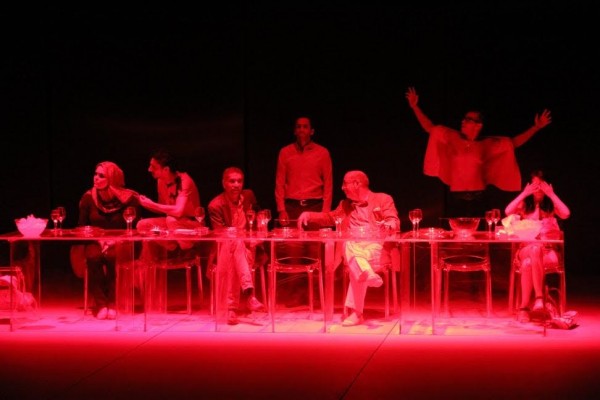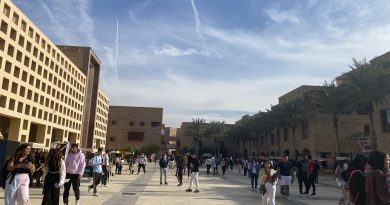Phase One of Tobacco-Free Campus Campaign Begins Today
BY HUSSEIN EL MOATAZ AND YASMEEN MAMDOUH
AUC will gradually phase out smoking to a complete ban by February 2019.
The newly-formed Tobacco Free Committee on January 30 said that it started three to four months ago and [its] mandate is to prepare the campus to be smoke-free by the centennial celebration.
According to a university-wide email sent by the committee last month, the first phase of the policy will be effective starting today and “will see the instalment of designated smoking areas within the pedestrian entrances,” as mentioned in the email.
“Part of the policy comes with a couple of measures to help people kick the habit and the clinic is running a free program that takes people step by step until they are able to overcome this habit,” said Lotfi Gaafar, a committee member and the chair of the mechanical engineering department.
Students remain divided as to the feasibility and fairness of the policy, especially for habitual smokers and addicts.
“I agree with the first phase and I think it does bring benefits to the AUC community, because while I am a smoker, some smokers neglect other people’s choices or wishes. Some people smoke inside of classrooms, inside of buildings and within proximity of others who may have asthma or allergies,” said Kamal Abdelghani, a computer engineering senior.
Many universities in the US have transitioned toward smoke and tobacco-free campuses in light of increasing health concerns.
“I have been annoyed with this [smoking on campus] for a long time. I took a year of sabbatical followed by a year of leave of absence because I cannot take it in this campus with the level of smoking here,” added Gaafar.
The Committee’s email also attached a map of where the six specified smoking areas will be, all of which are near greenery on campus.
The second phase of the policy, which will be effective starting this September, and entails that smoking will only be permitted outside pedestrian entrances in parking lots or waiting areas outside the campus entrances.
“No smoking indoors is perfectly understandable, but banning it outdoors? On what basis? West Europe and the U.S. have very strict smoking rules, but all indoors. You can smoke just about anywhere outside,” Alaa Abdel Ghani, adjunct faculty at the department of journalism and mass communication told The Caravan.
The final phase of the policy is set to completely ban smoking on campus by the University’s centennial celebration.
This falls in line with the University’s mission to create a healthier campus.
“The stress management program and the Psychology Clinic will help people to quit, free of charge,” said Jamie Mendoza, associate professor of practice of psychology and a committee member.
However, quitting may not be that easy given the high number of smokers on campus.
“I’ve been a pack-a-day smoker for at least 45 years, so this rule will definitely affect me. Obviously, it was adopted by somebody or some people who do not smoke. But they should understand the remarkable hold smoking has on smokers. People are not going to kick the habit simply because of station points, if that was the goal,” said Abdel Ghani.
“I expect that 50 percent of smokers from the community will totally quit smoking, and the other half will try to figure out other places to smoke in,” said Mendoza.
In the case of policy violation, the committee’s email explained that students will be reported to the Student Conduct Committee, whereas the staff will be reported to the Office of Human Resources and faculty, to the Provost.
“In, my opinion, if faculty members violate the rule there [should be] a procedure where they [are] reported to the Provost and to me, [this] could go all the way up until they are fired,” said Gaafar.
“Security guards will be responsible for applying the policy, which we will make sure to do firmly,” said Mohamed Ebeid, executive director for safety and security and committee member.
With several new policies and decisions taking place in the past year by the current administration, AUC’s decline in global ranking and sudden change in a policy that has been set for over a decade, many are questioning why the decision of the policy has come into play now.
“The University’s new administration wants to come off as successful in one domain or another and it’s more of a marketing or a PR strategy than anything else because in my opinion, their number one mission is to better academia at AUC and I am not seeing any focus on that despite the recent declines in the area,” Kamal Abdelghani said




